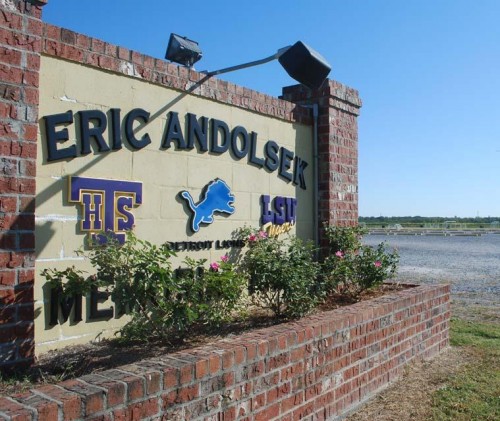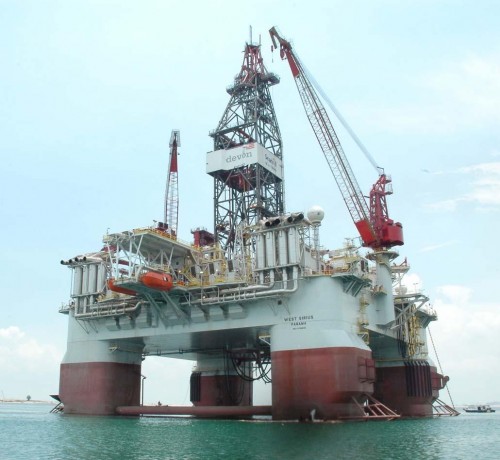
$13.6M in rec improvements unveiled in Thibodaux
November 1, 2011Houmapalooza returns
November 3, 2011BP, the principal owner of the Deepwater Horizon oil rig that failed to prevent a blowout that killed 11 people and dumped millions of barrels of oil into the Gulf of Mexico last year, has been permitted for its first deep-water oil exploration project in the Gulf since the 2010 catastrophe.
The Bureau of Safety and Environmental Enforcement announced last week, almost 18 months to the day of the disaster, that BP satisfied all regulatory requirements and agreed to meet additional “voluntary standards” in an effort to prevent another uncontrollable blowout.
“This permit was approved only after thorough well design, blowout preventer, and containment capability reviews,” BSEE Director Michael R. Bromwich said in a statement.
BP is slated to start drilling an appraisal well in Keathley Canyon’s Kaskida prospect Nov. 1, and the project is expected to last 205 days, according to the exploration plan BSEE approved the week prior. BP intends to drill three other wells in the prospect once the first is done.
The well site is located 200 nautical miles from Houma and 193 from Port Fourchon, where BP will base its supply and support services at Edison Chouest-owned and BP-leased C-Port.
The well will be drilled 6,034 feet beneath the water’s surface with Seadrill’s ultra-deepwater, semi-submersible rig West Sirius.
The Department of the Interior announced earlier this month BP could bid in the upcoming Gulf lease sale in December.
The oil giant is the latest company to meet heightened standards following last year’s blowout and subsequent ban on deep-water activity.
The fatal incident provoked drastic changes in the permitting process, including a mandate on the industry to describe a worst-case scenario discharge and response and the ability to contain an uncapped well within exploration plans.
BP estimated the worst-case spill volume to be 27,459 barrels of oil per day. The oil corporation has an agreement with Statoil for use of a Gulf rig to complete a relief well within 184 days, if necessary. In total, a worst-case blowout would spew about 4.9 million barrels of oil into the Gulf, which is similar to high-end estimates of the Macondo prospect gusher’s volume.
BP contracted with the Marine Well Containment Company to use its capping stack in the event of a blowout, BSEE said.
Some in the industry have argued that federal regulators are vague with the new requirements, which they say is unnecessarily holding up exploration plans and permits.
Louisiana Mid-Continent Oil and Gas Association President Chris John called BP’s permit “great news” for the industry as a whole, adding that each permit granted provides more guidance on what it takes to meet federal standards.
“It is my hope that this marks the beginning of certainty in the regulatory review process and that permits will start being issued in a timely manner,” he said.
The “voluntary” standards BP will meet include additional blind shear rams and a casing shear ram on all BP-contracted rigs in deep water to cut through the drill pipe in emergencies, and the commission of a third-party inspection on testing and maintenance of the blow-out preventer each time the BOP is brought to the surface.
In addition to debate about clarity in regulation, special interest groups and the permitting agency have grappled over how to interpret the permitting pace.
Seventeen unique new wells have been permitted since March 11, according to the BSEE database.
The Gulf Permit Index, commissioned by Greater New Orleans, Inc. and partnering organizations, said deep-water permits lag behind the historical pace. Four permits have been issued since August, which is a 31 percent decline of the 5.8 permit per month historical average, the GPI’s latest report states.
Bromwich, the BSEE director, said last month that even if the permitting pace is lagging, the priority is preventing another disaster.
“We cannot afford to have critics take liberties with the facts and act as though the only things that matter are the rapid approval of plans and permits, whether or not they comply with the standards and requirements that help ensure safety and environmental protection,” Bromwich said last month, according to the New Orleans Times Picayune.
BP will use Seadrill’s ultra-deepwater, semi-submersible rig West Sirius to drill its first new well in the Gulf of Mexico since the Deepwater Horizon disaster last year. COURTESY PHOTO







